The following people have generously contributed to this special series on learning during the Covid-19 pandemic:
 Nasim Ahmadiyeh M.D., Ph.D. is assistant professor of surgery at University of Missouri-Kansas City School of Medicine, breast surgical oncologist and Medical Director of the Comprehensive Breast Care Program at Truman Medical Centers, the primary safety-net/essential hospital in the Kansas City, Missouri, metro area. Her recent research focuses on cancer health disparities among the safety-net population.
Nasim Ahmadiyeh M.D., Ph.D. is assistant professor of surgery at University of Missouri-Kansas City School of Medicine, breast surgical oncologist and Medical Director of the Comprehensive Breast Care Program at Truman Medical Centers, the primary safety-net/essential hospital in the Kansas City, Missouri, metro area. Her recent research focuses on cancer health disparities among the safety-net population.
Naama Bar-on Shmilovitch is a PhD candidate in the Faculty of Social Welfare & Health Sciences and the manager of the Center for the Study of Organizations & Human Resource Management at the University of Haifa. She holds a LLB in Law and an MA in Human Services. Her research interests are workplace diversity, gender, employment relations and labour law. Her dissertation highlights socio-cultural aspects of pregnancy at the workplace.
 Orna Blumen is at the Faculty of Social Welfare and Health Sciences, Department of Human Services, University of Haifa, Israel. Her research focuses mainly on gender and home-work links, spanning from the investigation of workers’ commuting patterns and the ride experience to the study of how workers’ job involvement is perceived in their families, notably by their children and spouses. She unpacks these circumstances in the diverse Israeli society with regard to high-tech engineers, upper middle class women, and with special attention to the intersection of gender and the meaning of paid/unpaid work in the Ultra-Orthodox community and to the transformation of Arab society, mostly the Druze collective.
Orna Blumen is at the Faculty of Social Welfare and Health Sciences, Department of Human Services, University of Haifa, Israel. Her research focuses mainly on gender and home-work links, spanning from the investigation of workers’ commuting patterns and the ride experience to the study of how workers’ job involvement is perceived in their families, notably by their children and spouses. She unpacks these circumstances in the diverse Israeli society with regard to high-tech engineers, upper middle class women, and with special attention to the intersection of gender and the meaning of paid/unpaid work in the Ultra-Orthodox community and to the transformation of Arab society, mostly the Druze collective.
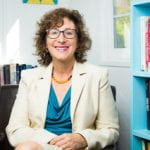 Alison Brysk is the Duncan and Suzanne Mellichamp Professor of Global Governance at the University of California, Santa Barbara. She is the author or editor of fourteen books on human rights, including Speaking Rights to Power, From Tribal Village to Global Village, Human Rights and Private Wrongs, and most recently The Struggle to End Violence Against Women (forthcoming with Oxford University Press). Professor Brysk was selected a Fulbright Professor in 2007 (Canada) and 2011 (India), a Fellow at the Woodrow Wilson Center in 2013-2014, the International Studies Association Distinguished Scholar in Human Rights 2015-2016, and the American Political Science Association Distinguished Scholar in Human Rights in 2017. She has lectured and held visiting professorships throughout Europe, Latin America, South Asia, South Africa, and Australia.
Alison Brysk is the Duncan and Suzanne Mellichamp Professor of Global Governance at the University of California, Santa Barbara. She is the author or editor of fourteen books on human rights, including Speaking Rights to Power, From Tribal Village to Global Village, Human Rights and Private Wrongs, and most recently The Struggle to End Violence Against Women (forthcoming with Oxford University Press). Professor Brysk was selected a Fulbright Professor in 2007 (Canada) and 2011 (India), a Fellow at the Woodrow Wilson Center in 2013-2014, the International Studies Association Distinguished Scholar in Human Rights 2015-2016, and the American Political Science Association Distinguished Scholar in Human Rights in 2017. She has lectured and held visiting professorships throughout Europe, Latin America, South Asia, South Africa, and Australia.
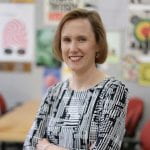 Dr. Audra Buck Coleman is an Associate Professor and director of the Graphic Design program at the University of Maryland, College Park. She has written, art directed, curated, designed, authored, directed, and collaborated on numerous design projects including Sticks + Stones, an international multi-university collaborative graphic design project that investigates stereotyping and social issues. Her design research focuses on social design, social design assessment mechanisms, and the ways art and design can create positive change in communities.
Dr. Audra Buck Coleman is an Associate Professor and director of the Graphic Design program at the University of Maryland, College Park. She has written, art directed, curated, designed, authored, directed, and collaborated on numerous design projects including Sticks + Stones, an international multi-university collaborative graphic design project that investigates stereotyping and social issues. Her design research focuses on social design, social design assessment mechanisms, and the ways art and design can create positive change in communities.
 Derek Caelin is an Innovation and Data Senior Specialist at Counterpart International. He helps civil society actors to understand and use technology in a changing world. Find Derek on Mastodon and Twitter.
Derek Caelin is an Innovation and Data Senior Specialist at Counterpart International. He helps civil society actors to understand and use technology in a changing world. Find Derek on Mastodon and Twitter.
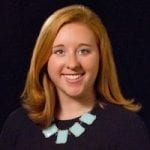 Caroline Corbett is a program manager at Chemonics International Inc., a company implementing international development programming around the world. Caroline received her self-defined undergraduate degree in Globalization, Human Rights, and the Middle East from the University of Maryland, College Park and will commence her graduate studies at the LBJ School of Public Affairs at the University of Texas at Austin in fall 2020 focusing on international security and public policy.
Caroline Corbett is a program manager at Chemonics International Inc., a company implementing international development programming around the world. Caroline received her self-defined undergraduate degree in Globalization, Human Rights, and the Middle East from the University of Maryland, College Park and will commence her graduate studies at the LBJ School of Public Affairs at the University of Texas at Austin in fall 2020 focusing on international security and public policy.
 Simon Dalby is a Professor of Geography and Environmental Studies at Wilfrid Laurier University. His published research deals with climate change, environmental security and geopolitics. He is author of Anthropocene Geopolitics: Globalization, Security, Sustainability, (University of Ottawa Press, 2020) and Security and Environmental Change (Polity, 2009), and co-editor of Achieving the Sustainable Development Goals (Routledge 2019), and Reframing Climate Change: Constructing Ecological Geopolitics (Routledge 2016).
Simon Dalby is a Professor of Geography and Environmental Studies at Wilfrid Laurier University. His published research deals with climate change, environmental security and geopolitics. He is author of Anthropocene Geopolitics: Globalization, Security, Sustainability, (University of Ottawa Press, 2020) and Security and Environmental Change (Polity, 2009), and co-editor of Achieving the Sustainable Development Goals (Routledge 2019), and Reframing Climate Change: Constructing Ecological Geopolitics (Routledge 2016).
 Dr. Cheryl Fogle-Hatch is the founder of MuseumSenses, a Baltimore-based advocacy studio that researches and develops multisensory experiences for galleries, museums and other cultural organizations.
Dr. Cheryl Fogle-Hatch is the founder of MuseumSenses, a Baltimore-based advocacy studio that researches and develops multisensory experiences for galleries, museums and other cultural organizations.
 Vafa Ghazavi is a Doctoral candidate and John Monash Scholar at Balliol College and lecturer in politics at Pembroke College, University of Oxford.
Vafa Ghazavi is a Doctoral candidate and John Monash Scholar at Balliol College and lecturer in politics at Pembroke College, University of Oxford.
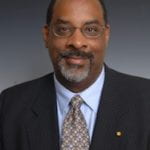 Joseph Graves, Jr. is Associate Dean for Research and Professor of Biological Sciences in the Joint School of Nanoscience and Nanoengineering at North Carolina A&T State University and UNC Greensboro. He received his Ph.D. in Environmental, Evolutionary and Systematic Biology from Wayne State University in 1988, making him the first African American evolutionary biologist in the United States. He is a Fellow of the Council of the American Association for the Advancement of Science (AAAS), a prestigious honor bestowed by his peers, and the recipient of numerous awards and research grants, including from the National Institutes of Health (NIH) and National Science Foundation (NSF). Dr. Graves was also selected as one of the “Sensational Sixty” for the 60-year commemoration of the NSF Graduate Research Fellowship Award, and he is the winner of the 2017 Black Engineer of the Year (BEYA) Innovation Award.
Joseph Graves, Jr. is Associate Dean for Research and Professor of Biological Sciences in the Joint School of Nanoscience and Nanoengineering at North Carolina A&T State University and UNC Greensboro. He received his Ph.D. in Environmental, Evolutionary and Systematic Biology from Wayne State University in 1988, making him the first African American evolutionary biologist in the United States. He is a Fellow of the Council of the American Association for the Advancement of Science (AAAS), a prestigious honor bestowed by his peers, and the recipient of numerous awards and research grants, including from the National Institutes of Health (NIH) and National Science Foundation (NSF). Dr. Graves was also selected as one of the “Sensational Sixty” for the 60-year commemoration of the NSF Graduate Research Fellowship Award, and he is the winner of the 2017 Black Engineer of the Year (BEYA) Innovation Award.
 Esther Kaufman is a Masters Student in Economics at Katholieke Universiteit Leuven in Leuven Belgium. She graduated from the University of Maryland with a BA in Economics with a minor in Global Terrorism Studies in 2017.
Esther Kaufman is a Masters Student in Economics at Katholieke Universiteit Leuven in Leuven Belgium. She graduated from the University of Maryland with a BA in Economics with a minor in Global Terrorism Studies in 2017.
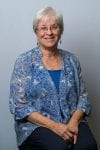 Dafna Lemish is a Distinguished Professor and Associate Dean at the School of Communication and Information at Rutgers University, the founding editor of the Journal of Children and Media, and a Fellow of the International Communication Association (ICA). She is author and editor of numerous books and articles on children, media, and gender.
Dafna Lemish is a Distinguished Professor and Associate Dean at the School of Communication and Information at Rutgers University, the founding editor of the Journal of Children and Media, and a Fellow of the International Communication Association (ICA). She is author and editor of numerous books and articles on children, media, and gender.
 Robin Marquis is a Baltimore-based artist, facilitator, disability activist and accessibility consultant. They currently serve as the Community Outreach Coordinator for Access Smithsonian, the central accessibility office for the Smithsonian Institution.
Robin Marquis is a Baltimore-based artist, facilitator, disability activist and accessibility consultant. They currently serve as the Community Outreach Coordinator for Access Smithsonian, the central accessibility office for the Smithsonian Institution.
 Melissa Nursey-Bray is an Associate Professor at the Department of Geography, Environment and Population, Faculty of Arts, University of Adelaide, South Australia. Her focus is on working with communities to build strategies to respond to and manage global environmental crises in socially just ways. She has worked with Indigenous communities, local government, government, and the ports and fishing sectors. Her current focus is on how to build socially just climate adaptation.
Melissa Nursey-Bray is an Associate Professor at the Department of Geography, Environment and Population, Faculty of Arts, University of Adelaide, South Australia. Her focus is on working with communities to build strategies to respond to and manage global environmental crises in socially just ways. She has worked with Indigenous communities, local government, government, and the ports and fishing sectors. Her current focus is on how to build socially just climate adaptation.
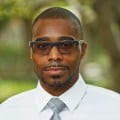 Rashawn Ray, a David M. Rubenstein Fellow in Governance Studies at The Brookings Institution, is Professor of Sociology and Executive Director of the Lab for Applied Social Science Research (LASSR) at the University of Maryland, College Park. He is also one of the co-editors of Contexts Magazine: Sociology for the Public. Formerly, Ray was a Robert Wood Johnson Foundation Health Policy Research Scholar at the University of California, Berkeley.
Rashawn Ray, a David M. Rubenstein Fellow in Governance Studies at The Brookings Institution, is Professor of Sociology and Executive Director of the Lab for Applied Social Science Research (LASSR) at the University of Maryland, College Park. He is also one of the co-editors of Contexts Magazine: Sociology for the Public. Formerly, Ray was a Robert Wood Johnson Foundation Health Policy Research Scholar at the University of California, Berkeley.

Mahvash Sabet is a poet, psychology teacher, and member of the Baha’i Yaran – who experienced severe solitary confinement during a ten year sentence in the prisons of Iran.
Peter N. Stearns is University Professor of History at George Mason University and editor of a forthcoming volume (Routledge) on the modern history of death.

